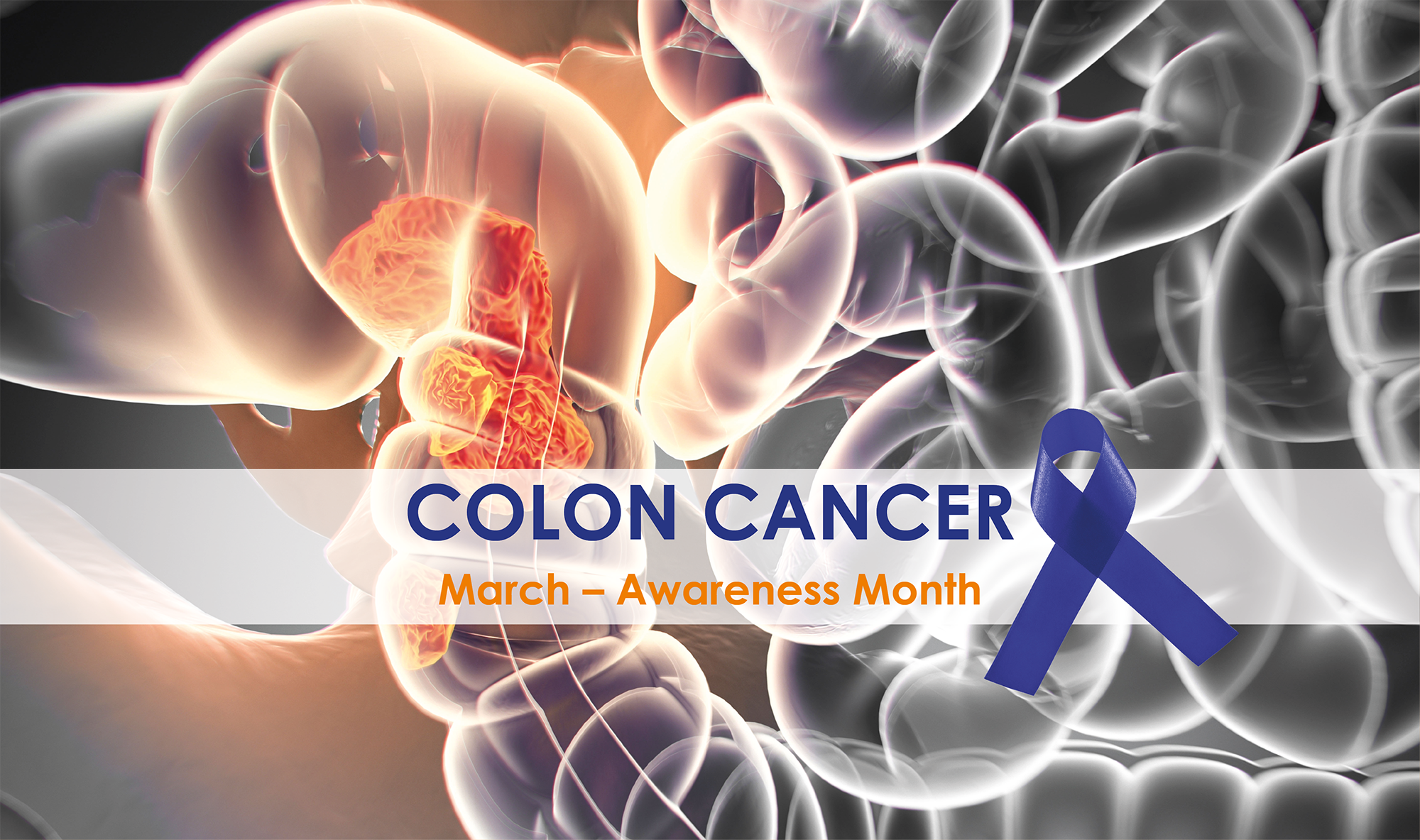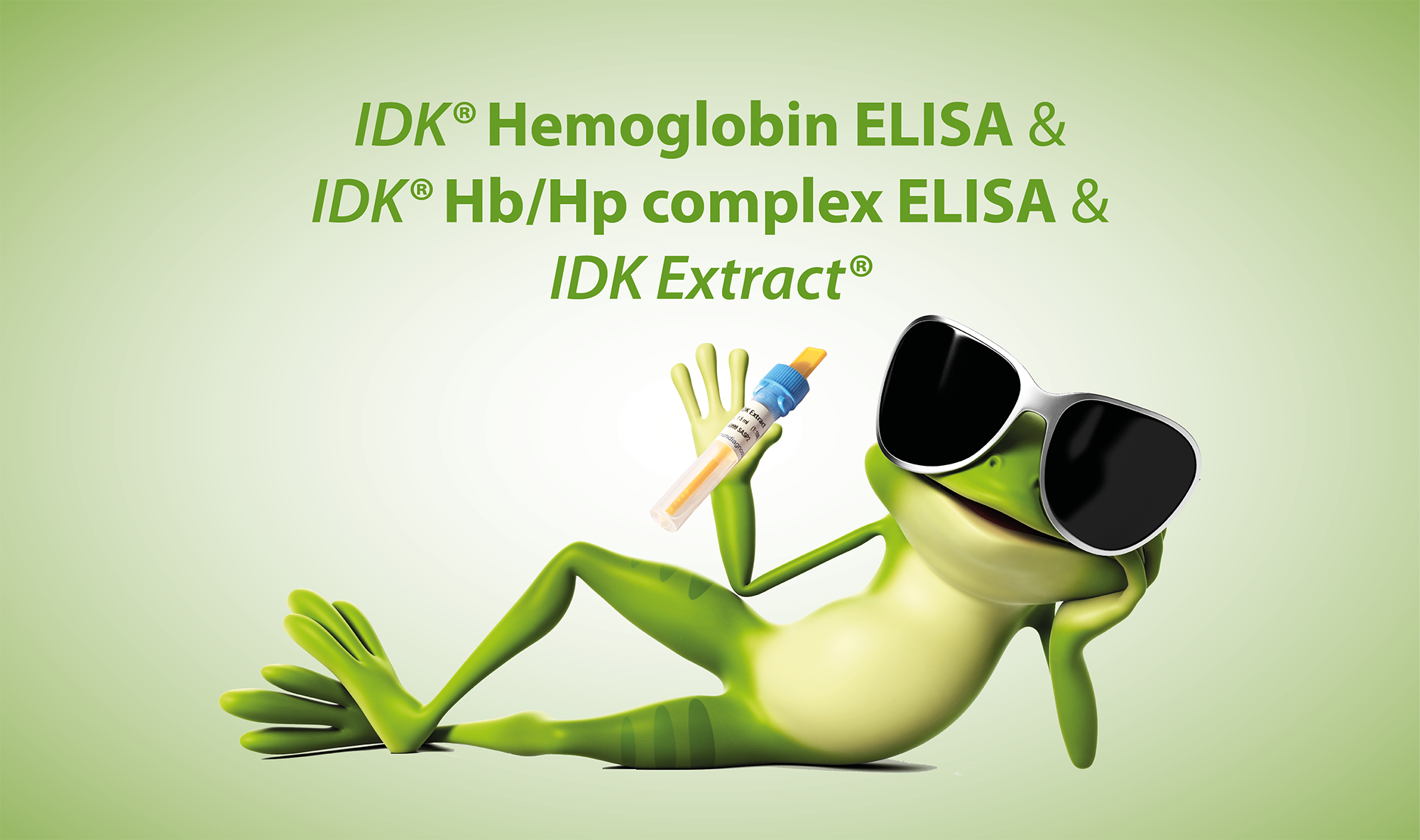


Colorectal carcinoma, i.e. cancer of the colon or rectum, is the third most frequent cause of cancer-related deaths. March is Colon Cancer Awareness month and IDK wants to help spreading awareness on how the disease affects the world and what can be done to prevent colorectal cancer.
When we talk about bowel cancer, we usually mean tumours in the large intestine (colon) or in the rectum. Medically, these diseases are referred to as colorectal carcinomas. About one in eight cancers in Germany affect these parts of the intestine. Cancers in the small intestine, which is known to be directly connected to the stomach, are rather rare. The exact causes for the development of bowel cancer have not yet been clarified in detail. (2, 3)
If the cancer is diagnosed at an early stage, i.e. at best before symptoms appear, the chances of cure and thus life expectancy increase significantly. If the disease is diagnosed at stage I, about 92-95% of those affected survive the first 5 years after diagnosis. Efficient prevention through early detection measures can prevent 40-60% of cancer cases and deaths. (1, 4, 5)
Various methods of bowel cancer screening are widely used. These include colonoscopy and faecal immunological tests (FIT).
This test uses specific antibodies to quantitatively detect human haemoglobin in stool samples. Haemoglobin is a component of blood. Small amounts of blood in stool samples are not visible to the naked eye. In this case, it is called occult blood. If the amount of occult blood exceeds a certain value, this indicates bleeding in the gastrointestinal tract. These bleedings can come from polyps (pre-cancerous bowel lesions) or from tumours in an early stage of the disease, without any other symptoms being noticeable.
FIT is a non-invasive way of screening for bowel cancer. Since no instruments have to be inserted into the body, the risk of tissue injury can be excluded. This can lead to a higher acceptance in the population and thus to higher participation rates in prevention services. (6)
Quantitative Fecal Immunochemical Tests (FIT) are recommended for colorectal cancer population screenings. An advantage of quantitative tests is the ability to vary cut-off values, which allows an adaption to current conditions, such as national colonoscopy resources, gender and age-specific differences.
Immundiagnostik AG offers a comprehensive immunological colorectal cancer screening portfolio for low and high sample throughputs. IDK® Hemoglobin ELISA (K 7816D) is a quantitative sandwich ELISA for the detection of human haemoglobin. Gies et al. (2019) described the IDK® Hemoglobin ELISA as the FIT test with the best diagnostic performance, whose significance could not be improved by combining it with other iFOBTs (Gies et al., 2019).
Free haemoglobin is bound by haptoglobin, a blood protein. The haemoglobin-haptoglobin complex is more stable during intestinal transit than unbound haemoglobin and therefore also indicates bleeding adenomas and carcinomas of the upper intestinal tract. The combination of IDK® Hemoglobin ELISA (K 7816D) and IDK®Hemoglobin/Haptoglobin complex ELISA (K 7817D) achieves the highest sensitivity with regard to the early detection of colorectal cancer (Sieg et al., 1999;Lüthgens et al., 1998).
The IDK®stool sample preparation system (SAS) filled with the extraction buffer IDK Extract® (K 6999) is suitable for simple and hygienic stool sample preparation.

Sources:
¹ Sung H et al. (2021): Global Cancer Statistics 2020: GLOBOCAN Estimates of Incidence and Mortality Worldwide for 36 Cancers in 185 Countries, CA Cancer J Clin. 2021May;71(3):209-249. doi: 10.3322/caac.21660. The online GLOBOCAN 2020 database isaccessible at http://gco.iarc.fr/, as part of IARC’s Global Cancer Observatory.
² https://www.felix-burda-stiftung.de/ (aufgerufen am 01.03.2022)
³ Krebsinformationsdienst (KID) des Deutschen Krebsforschungszentrums (DKFZ): „Dick-und Enddarmkrebs: Anatomie, Entstehung, Häufigkeit"
⁴ Krebs in Deutschland für 2017/2018. 13. Ausgabe. Gesellschaft der epidemiologischenKrebsregister e. V. (GEKID) und Zentrum für Krebsregisterdaten (ZfKD) im Robert-Koch-Institut. Berlin, 2021.
⁵ Früherkennungskoloskopie Jahresbericht 2019, Zentralinstitut für die kassenärztlicheVersorgung in Deutschland (Hrsg.). Köln, 2021.
⁶ Zorzi, M. et al. Long-term performance of colorectal cancerscreening programmesbased on the faecal immunochemical test. Gut. 2018.
⁷ Gies A, Cuk K, Schrotz-King P, Brenner H. Combination of Different FecalImmunochemical Tests in Colorectal Cancer Screening: Any Gain in DiagnosticPerformance? Cancers (Basel). 2019 Jan 20;11(1):120. doi: 10.3390/cancers11010120.PMID: 30669538; PMCID: PMC6356298.
⁸ Sieg A, Thoms C, Lüthgens K, John MR, Schmidt-Gayk H. Detection of colorectalneoplasms by the highly sensitive hemoglobin-haptoglobin complex in feces. Int JColorectal Dis. 1999 Dec;14(6):267-71. doi: 10.1007/s003840050226. PMID: 10663892.